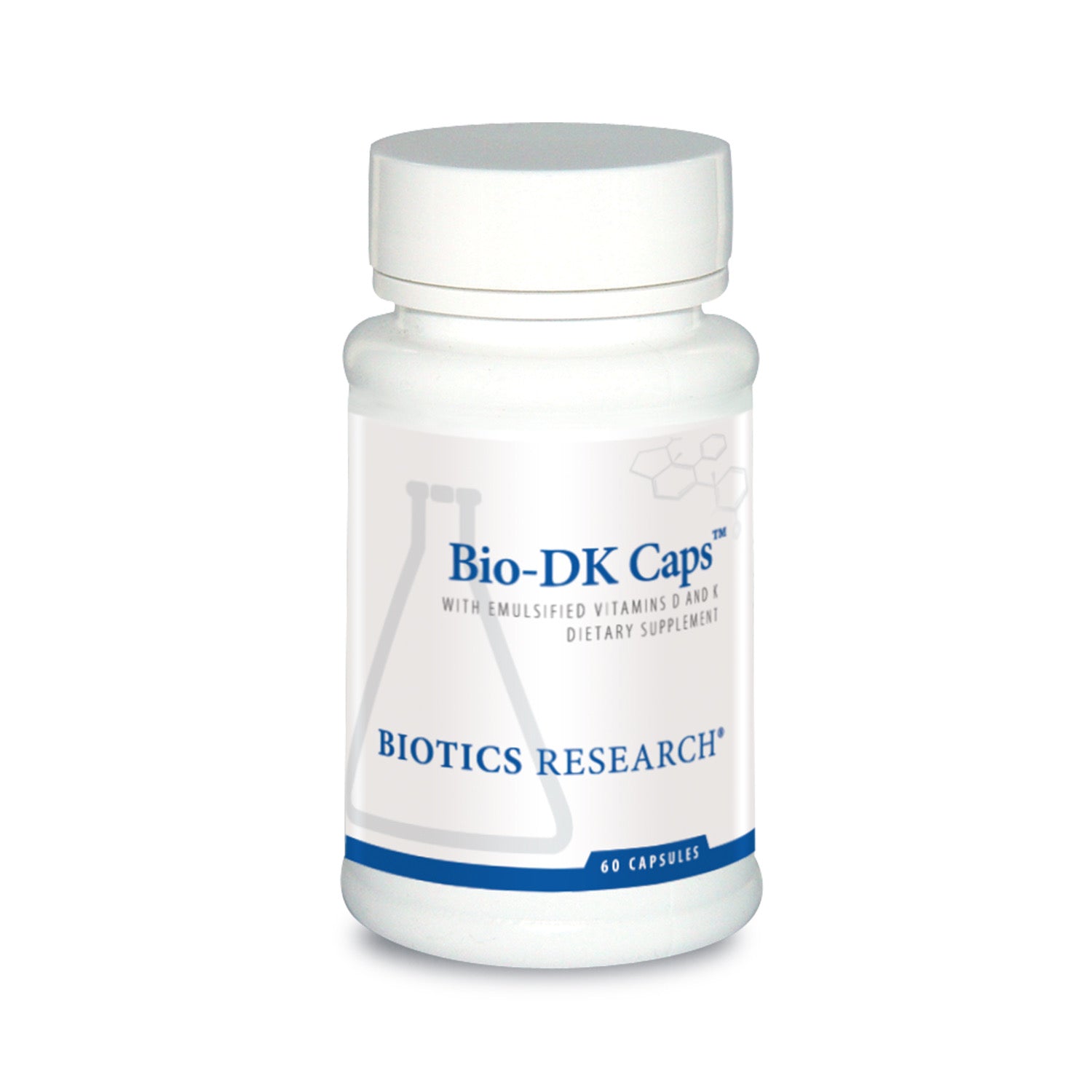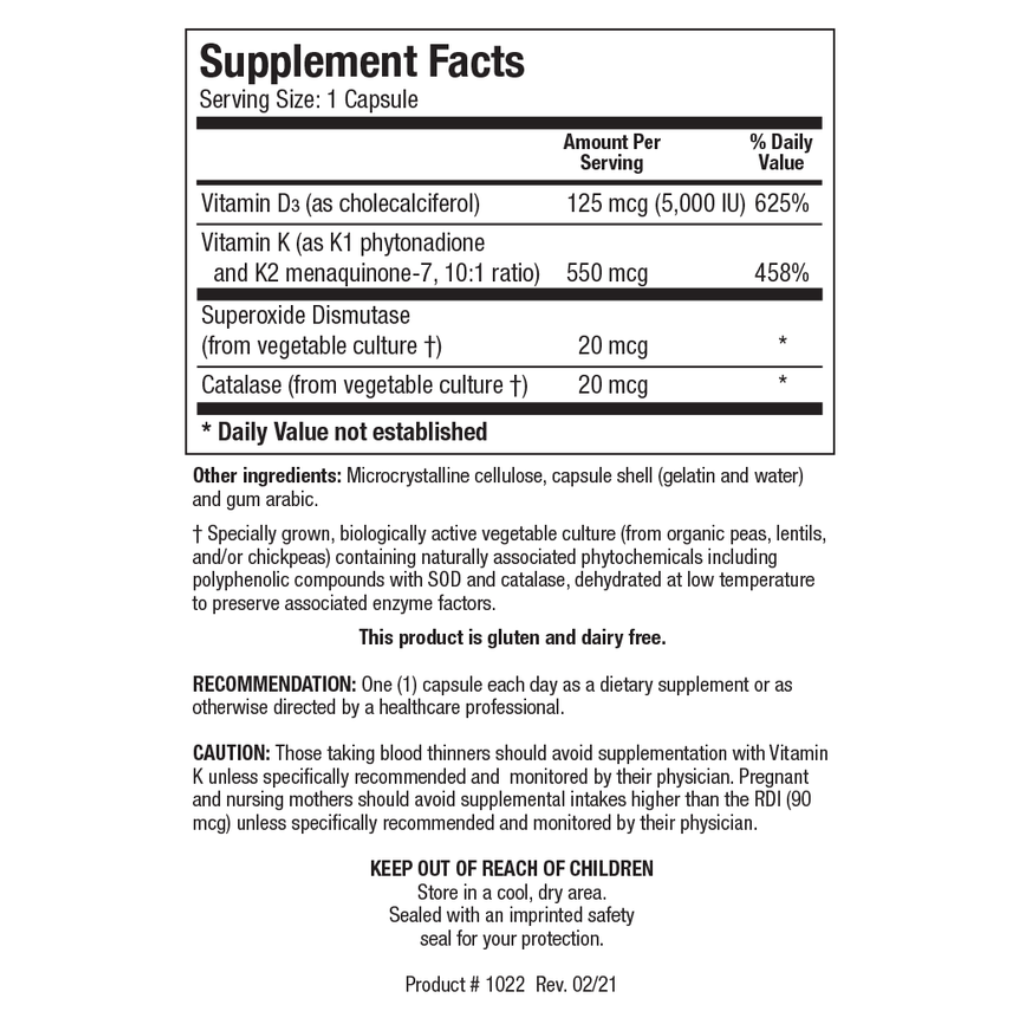-
60 Capsules
The majority of people in the United States do not synthesize sufficient vitamin D in order to meet physiological requirements
Bio-DK Caps™ supplies 125 mcg (5,000 IU) of vitamin D3, 550 mcg of vitamin K (as K1 phytonadione and K2 menaquinone-7) as a micro-emulsion for enhanced absorption and utilization, which is particularly important for those with malabsorption conditions. In addition to emulsified forms of vitamins D and K, Bio-DK Caps™ contains superoxide dismutase (SOD) and catalase. SOD is an enzyme that aids in cell repair and provides antioxidant protection against cellular damage from free radicals and environmental toxins. Catalase in an enzyme that converts hydrogen peroxide into oxygen and water, also showing strong antioxidant properties.
Product Warnings: CAUTION: Those taking blood thinners should avoid supplementation with Vitamin K unless specifically recommended and monitored by their physician. Pregnant and nursing mothers should avoid supplemental intakes higher than the RDI (90 mcg) unless specifically recommended and monitored by their physician.
-
RECOMMENDATION: One (1) capsule each day as a dietary supplement or as otherwise directed by a healthcare professional.
With more and more research highlighting the importance of maintaining healthy vitamin D levels, patients require a form that is bioavailable, easy-to-take and in a clinically useful dosage. Bio-DK-Mulsion™ deliver an impressive 125 ug (5000 IU) of vitamin D3, with vitamins K1 (as phytonadione) and K2 (as MK-7, menaquinone-7) in a micro-emulsified formula.
Vitamins D and K work synergistically to optimize bone and heart health. More specifically, vitamin K activates the matrix Gla-protein (MGP), a vitamin K dependent protein (VKDP) that helps direct calcium to bones and teeth, and away from the arteries. Both osteocalcin (responsible for putting calcium into bones) and MGP (preventing calcium deposits in arteries and soft tissues) are vitamin K dependent.
Vitamin D, a nutrient synthesized in our skin when exposed to sunlight, can also be found in some foods such as oily fish, beef liver, egg yolks, mushrooms and some fortified foods such as milk and breakfast cereal. Surprisingly, however, nearly half of the American population is deficient in vitamin D,⁽1⁾ with serum of 25-hydroxy vitamin D concentrations less than 20 ng/mL (50 nmol/L).
While we are familiar with the importance of vitamin D in calcium absorption and bone metabolism, many may not be aware of burgeoning research on vitamin D, and the widening range of applications available for cholecalciferol, which can be classified as both a vitamin and a pro-hormone.
Several clinical investigations have shown vitamin D deficiency to be particularly common among people with musculoskeletal pain.⁽⁴,⁵⁾ In addition, a study on patients with osteoarthritis (OA), a chronic degenerative disease of articular cartilage, shows vitamin D to have a positive influence on healthy inflammatory pathways.
Download Product Info



